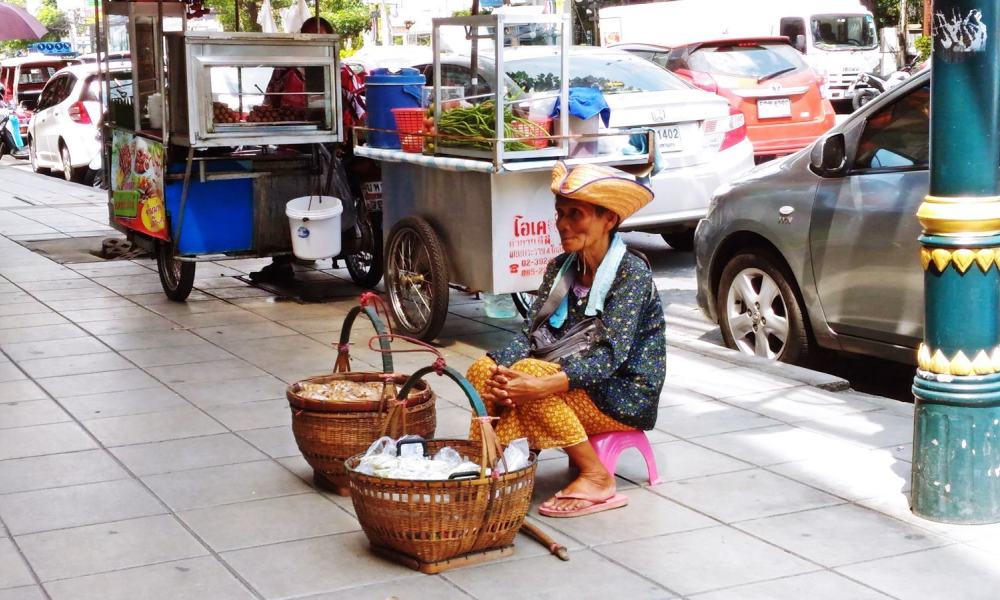The coronavirus pandemic (COVID-19) has touched people from all walks of life. Across Thailand, children have been home from school, employees have been working from home, and business owners have struggled to remain viable.
All of us have been learning to conduct our daily lives. The less fortunate have lost their jobs or incomes and must seek alternative livelihoods.
And this poses the question, how can Thailand limit the impact on its economy by expanding safety nets for the vulnerable and rethinking social protection?
COVID-19 will worsen an already challenging situation for households facing droughts, stagnant wage growth, and rising poverty. Poverty rates had risen already in 2016 and 2018, according to the World Bank’s report, Taking the Pulse of Poverty and Inequality in Thailand report. Now, as economic activity declines, job and income loss will likely worsen household welfare.
Declining incomes pose a serious challenge for poverty reduction
Labor market income represents a significant share of households’ income, and declines will reduce their ability to pay bills and satisfy basic needs.
Income from remittances is also important – more so than public assistance income – but with migrants unable to work, this source of funds is also expected to decline. With low savings, there is little space for households to smooth consumption to cope with the income shock.
More than half of workers in Thailand are informal, meaning they are not covered by a social security scheme and are particularly vulnerable.
In 2018, there were an estimated 21.2 million informal and 17.1 million formal workers. Besides agriculture, with a 92% informality rate, jobs in commerce have the second highest rate of informality at 60%.
Thailand’s social protection system faces several challenges
Thailand’s social protection system faces several challenges in the face of these emerging needs.
Spending on social protection lags behind other countries: in 2015, Thailand spent an estimated 3.7% of GDP on it, compared to 6.3% in Vietnam and China and 10.1% in high-income Korea.
Unlike China, Malaysia, Mexico and other upper-middle-income countries, Thailand lacks a generalized safety net program for the poor, though the existing welfare card scheme is a step in this direction.
The government has taken important steps to confront the economic challenges facing households. It has introduced a series of fiscal and monetary packages beginning in January, with the most recent announced in early April.
Fiscal and monetary packages
The announced policy measures total approximately 15% of GDP,…
Source link : Covid-19, poverty, social protection and the Thai economy by World Bank

